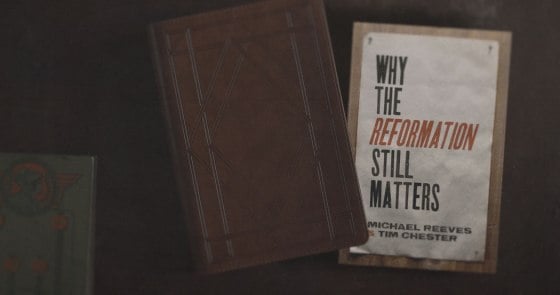⏱️ Estimated Reading Time: 3 min read
October 31s, 2017, marks the 500 year anniversary of the Protestant Reformation. This quin-centennial celebration is remarkable in many ways, as Protestants around the world will remember the accomplishments of the Reformers, most notably the bold move by Martin Luther in nailing the Ninety-Five Theses to the castle door at Wittenberg.
Despite the widespread celebration of many who take delight in the rediscovery of the gospel, and the great doctrine of justification by faith alone, there is an ongoing debate concerning the relevance of the Reformation for our time. Michael Reeves and Tim Chester address this specific matter in their new book, Why the Reformation Still Matters.
After a brief introduction to the history and theology of the Reformation, Reeves and Chester waste no time in an initial answer to the question: “We need a stronger, not a weaker focus on Reformation theology.” They describe the Reformation as “a continual movement back to God’s Word”. Thus, the stage is set for the remainder of the book which will argue in no uncertain terms that the Reformation still matters.
Reeves and Chester undergird their stance by pointing readers to key doctrines that were rediscovered during the days of the Protestant Reformation. They showcase the gospel systematically as they unfold the biblical reality of sovereign grace. Indeed, we are saved by grace alone, through faith alone, in Christ alone, on the Word alone, to the glory of God alone.
Each doctrine is unveiled and contrasted with the historic Roman Catholic position, which gives readers an opportunity to interact with two competing systems of thought. The authors are charitable and gracious, but never compromise the truth. Reeves and Chester boldly present the core elements of Reformed theology; doctrines that magnify the Savior and humble sinners.
Why the Reformation Still Matters is an outstanding summary of this important topic. People from all stripes, from beginning to advanced, will benefit from reading this book. There is enough information to keep seasoned theologians and students of church history on their toes. Yet, the material is not too advanced for anyone just getting started in the field of church history. The balance here is rare and should be well received by readers.
Why the Reformation Still Matters succeeds by making a positive case for the gospel-saturated truths that flowed from the Reformation and continue to impact lives in our generation. Yet, theology is more than an end in itself. “Through these truths,” write Reeves and Chester, “lives can still blossom under the joy-giving light of God’s glory.” In other words, the Reformation makes a practical difference in the lives of people. It did 500 years ago and will continue to impact lives as we await the return of our Sovereign King.



